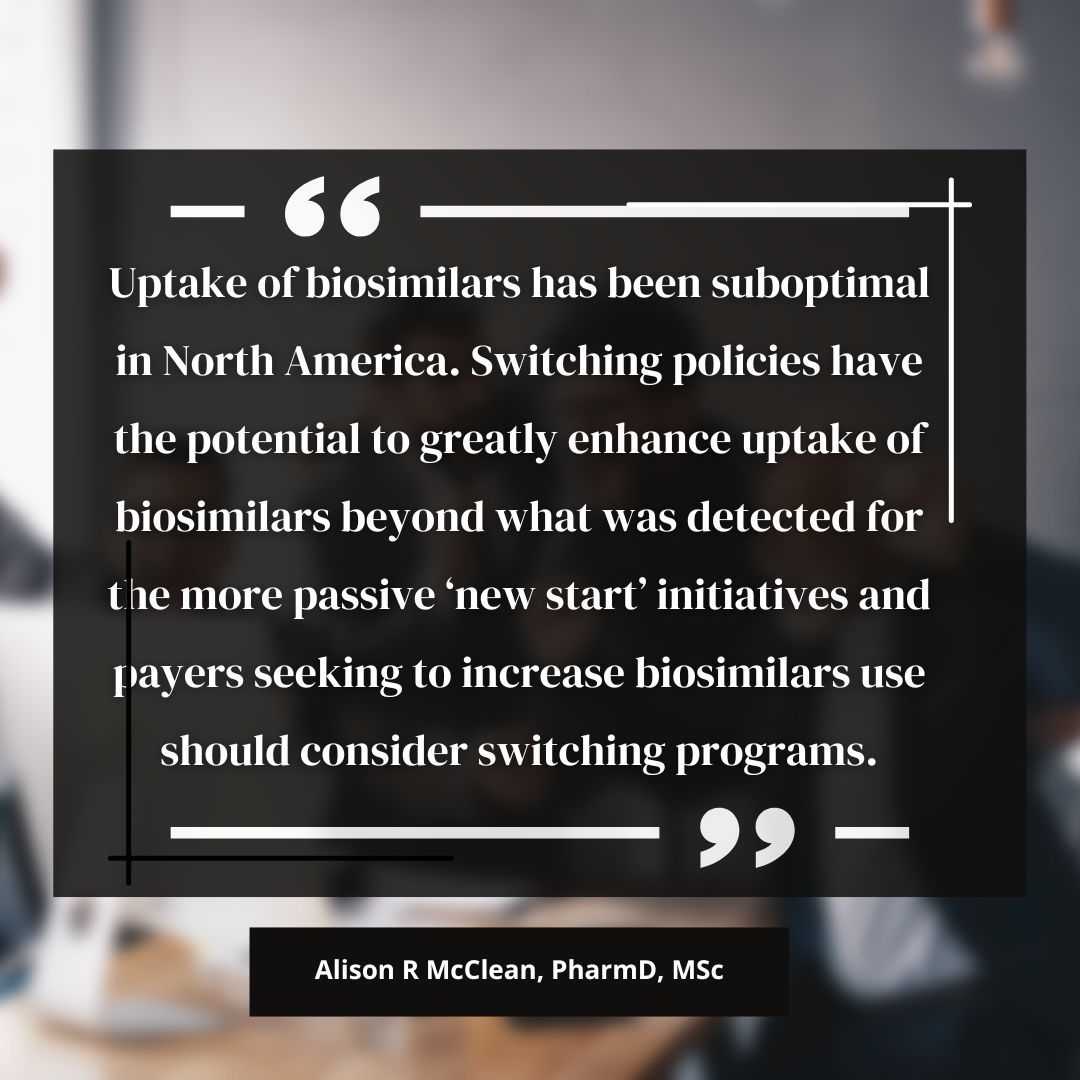Article
Mandatory Switching Policies More Effectively Increase Uptake of Biosimilars
Author(s):
Pharmaceutical claims data were collected for the reference drugs and etanercept and infliximab biosimilars to analyze changes in the proportions of dispensed of and total spending on biosimilars after the new start and biosimilar switching policies began.
When compared with new start policies, mandatory switching polices were more likely to increase the use of biosimilar medications, according to a study published in Arthritis Care and Research.1

“In 2019, the province of British Columbia (BC) became the first region in North America to require individuals established on therapy to switch to a biosimilar in order to maintain provincial drug coverage,” Alison R McClean, PharmD, MSc, of the Centre for Health Services and Policy Research, University of British Columbia, Canada, and colleagues, stated. “Given the novelty of this policy in North America, we assessed changes in the uptake and spending on biosimilar infliximab and etanercept in BC following these two distinct policy changes.”
Administrative claims data, such as hospital discharges and separations (Discharge Abstract Database), Medical Services Plan (MSP) payment information, and outpatient prescription dispensation data (PharmaNet), were used to identify adult patients with rheumatoid arthritis (RA), psoriatic arthritis (PsA), plaque psoriasis, and ankylosing spondylitis living in BC who were eligible for public drug coverage between January 2013 and November 2020.
Using PharmaNet data, investigators collected pharmaceutical claims for the reference drugs and etanercept and infliximab biosimilars. They then analyzed changes in the proportions of dispensed of and total spending on biosimilars out of the total amount per drug after the biosimilar switching and new start policies began.
A total of 208,984 patients were included, with 5884 using infliximab and etanercept. Of these patients, 4697 (79.8%) had previously filled a prescription for etanercept and 1187 (20.2%) had received infliximab. Most patients (59.1%, n = 123,475) were female and 44.3% (n = 92,592) were between the ages of 50 and 69 years.
A small increase of .65% per month (95% confidence interval [CI] .44, .85) was observed in the proportion of biosimilar etanercept prescribed after the new start policy was implemented, with no significant level change in utilization. Additionally, the proportion of total spending on the biosimilar also increased (0.51%, 95% CI 0.28,0.73). No statistically significant changes were observed in spending or utilization for those receiving the infliximab biosimilar.
After initiating the switching policy, the proportional utilization of the infliximab biosimilar increased from 21.6% to 33.7% in terms of total spending and 74.6% to 78.9% regarding the number of prescriptions dispensed over the pre-intervention period. The etanercept biosimilar also increased from 15.8% to 21.6% for the proportion of total spending and 71.9% to 79.8% for prescriptions dispensed.
A sustained increase in the proportion of the biosimilar prescriptions distributed was observed after the switching policy, of 76.98% (95%CI 75.56,78.41) for etanercept and 58.43% (95% CI 52.11,64.75) for infliximab. A persistent increase in monthly spending was also reported for both etanercept and infliximab (78.22%; 95% CI 76.65, 79.79 and 71.23%; 95% CI 66.82, 75.65, respectively).
Generalizability may be limited as the impact of switching to a biosimilar may vary due to a number of payer-related factors in addition to patient and physician preferences. Future research should determine the long-term impacts of these policies.
“Although new start policies may result in some small gradual increases in biosimilar utilization, payers can substantially influence the use of biosimilars through the implementation of mandatory biosimilar switching policies,” McClean concluded. “Given the clinical similarity in their effect and potential savings, other jurisdictions and payers should seriously consider the use of these policies.”
References
- McClean AR, Cheng L, Bansback N, et al. Uptake and spending on biosimilar infliximab and etanercept after new start and switching policies in Canada: An interrupted time series analysis [published online ahead of print, 2023 Feb 8]. Arthritis Care Res (Hoboken). 2023;10.1002/acr.25099. doi:10.1002/acr.25099





